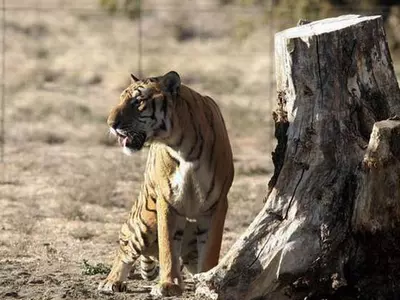7 Lakh Trees In The 90 Square Kilometres Of Panna Tiger Reserve May Submerge In Ken-Betwa Project

About 7.2 lakh trees and a huge 90 square kilometres area of Panna Tiger Reserve (PTR) may be submerged in water due to the Ken-Betwa river linking project, according to an official report.

trumpetandroar
There will also be an "irreversible" loss of breeding sites for wild animals after submergence of critical and specialised habitats under the proposed project which is likely to cost over Rs 9,000 crore.
The Ken-Betwa project is expected to provide drinking water supply for 13.42 lakh people and help irrigate 6.75 lakh hectares of land in the poverty-ridden Bundelkhand region covering parts of Madhya Pradesh and Uttar Pradesh. The project is founded on construction of a dam at Dhaudan village inside the PTR's core area in Chhatarpur district of Madhya Pradesh.
"The entire forest area under the proposed submergence both within and outside PTR is tiger habitat, while the non-forest area is potential tiger habitat. Thus, about 90 sq km area of tiger habitat, including potential habitat, will have to be considered as submergence zone," National Board of Wildlife (NBWL) Standing Committee report on Ken-Betwa link project said.

Reuters
At present, there are around 35 tigers in the reserve, which had in 2009 reported extinction of the big cats.
he report, which has been submitted to Union Environment Ministry, said the total counting of trees in the proposed submergence area has not been done, but a sample survey by the forest department has estimated that "about 7.2 lakh trees above 20 cm girth at breast height would submerge in the national park area and this number may go up to about 12 lakh stems when young poles and established sapling are accounted".

nwda.gov.in
It said an equally high number of trees will be cut or lost in the forest areas outside the national park. "Thus considerable quantity of carbon stored as biomass would be released once the dam is constructed, in addition to loss of vegetation diversity," said the report, a copy of which was received by wildlife activist Ajay Dubey in response to an RTI query filed by him.
He said the National Green Tribunal and appropriate court will be approached to challenge the proposed project on the basis of the report's findings.

























